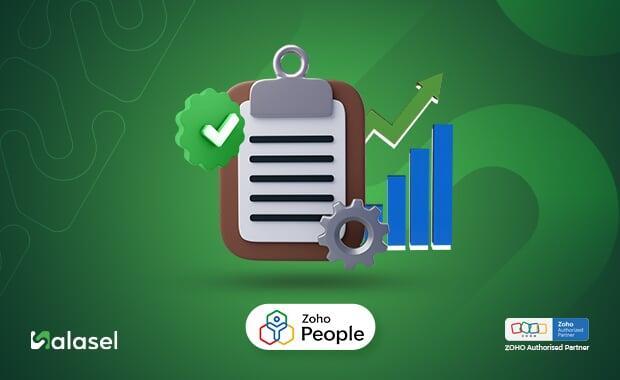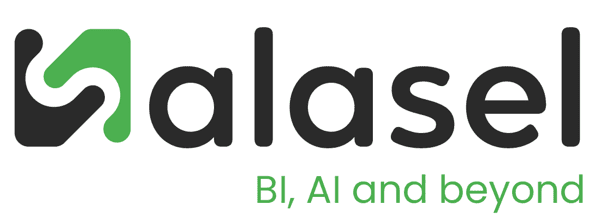
Who hasn't come across some funny or amazing short video clips entirely designed by artificial intelligence?
Yes, AI technology has significantly integrated into all fields of work and industry in our current era, as AI is no longer a concept from science fiction; rather, it has become a driving force reshaping every industry. And in light of this revolution, project management is one of the fields that will witness a radical transformation in the coming years.
So what exactly will change? And how can we utilize AI in project management?
This is what we will discuss in this article; we will highlight the tangible changes we can expect in project management over the next three years, driven by the revolution in business technologies.
We will delve into how AI will transform routine tasks into automated processes, enhance decision-making, and redefine the fundamental role of the project manager.
The Current Situation: Challenges of Traditional Project Management
Despite advancements in tools, traditional project management still suffers from ongoing challenges.
Project managers rely heavily on human skills for planning, monitoring, and communication. This often leads to:
- Time consumption on routine tasks: Spending long hours updating spreadsheets, writing status reports, and creating timelines consumes valuable time.
- Dependence on human intuition: Key decisions are often made based on personal experience or guesswork, which exposes projects to human errors.
- Inaccurate forecasts: Predicting the time, budget, and resources needed for a project is still a difficult process, which leads to delays or budget overruns.
These challenges are exactly what AI will address in the next few years. And some changes in business technologies have already begun to have an effect, solving some of these challenges effectively and quickly, which is the ultimate goal of developing various technologies in the first place.
AI in Project Management: What Will Change?
The roles and responsibilities of the project manager will change radically, as AI will become a smart assistant that works in the background to ensure the work flows smoothly.
Here are the most impactful changes that will occur within 3 years:
Automated Planning and Forecasting:
Current tools will go beyond just displaying historical data.
Systems powered by AI will analyze data from previous projects, as well as external data (such as market conditions or weather), to generate highly accurate timelines and optimally allocate resources.
Proactive Risk Management:
Instead of waiting for a problem to occur, AI will become an early warning system.
It will monitor all project variables in real-time, from team performance to material availability, to provide instant recommendations on how to avoid risks.
Resource Optimization and Task Allocation:
Determining the best person to perform a specific task is one of the main challenges.
AI will completely change this process, as it will analyze the skills, experience, and performance of each team member to recommend the most suitable person for each task.
Automation of Routine Tasks:
Perhaps this is the most noticeable benefit of AI, and one that some companies have already started to utilize.
AI will free the project manager from administrative burdens.
Smart chatbots will become capable of creating periodic reports, sending updates to stakeholders, and scheduling meetings automatically.
This will allow the project manager to focus on the more important aspects of their work.
Some service providers have noticed this shift in activating AI in administrative roles, and one of the best examples of this is the Zoho suite:
Zoho Tools and the Ability to Automate:
This transformation will not be limited to major platforms, but will become a part of the business technologies offered by leading companies like Zoho.
Zoho offers a set of tools that integrate AI at their core to facilitate project management tasks. For example:
- Zoho Projects:This tool uses AI to enhance planning capabilities, as it analyzes data from previous projects to provide accurate predictions about potential completion dates and identifies tasks that may cause a delay.
- Zoho CRM: "Zia," the smart assistant in Zoho CRM, can automate tasks such as scheduling follow-up emails or analyzing customer behavior to provide personalized recommendations, which saves valuable time for the team and enables them to focus on building relationships.
Zoho Analytics: A manager can ask this tool questions in natural language about project performance, and AI will analyze the big data to provide detailed reports and insights in seconds.
The great thing is that all of these tools integrate with each other and benefit from the data in each of them, which means a double-fold increase in effectiveness!
New Business Technologies: The Coming AI Tools
These changes will not happen on their own; rather, they will be driven by new business technologies that integrate AI at their core:
AI-Powered Project Management Platforms: Leading platforms will integrate AI into their interfaces, providing tools for forecasting, risk analysis, and automatic resource allocation.
Virtual Assistants: Virtual assistants will become more advanced and specialized, as they will be able to answer team and client inquiries, monitor progress, and provide instant alerts about potential problems.
Predictive Dashboards: Dashboards will evolve to provide deep insights that go beyond just displaying data. AI models will be used to provide forecasts about the project's path and offer actionable recommendations.
The New Role of the Project Manager: From Executor to Strategist
Does this mean that the project manager's role will end? Absolutely not.
AI will remain a tool that needs someone to utilize and harness it, and the more experienced, efficient, and creative the person using it is, the more they will be able to extract from it.
AI will not replace the project manager; rather, it will transform their responsibilities.
The project manager's role will shift from an executor of routine tasks to a strategic thinker and team leader. Human skills will become more important than ever:
- Emotional Intelligence: Understanding team dynamics, motivating individuals, and resolving conflicts.
- Strategic Thinking: Focusing on the big picture, and ensuring that the project aligns with the broader business goals.
- Ethical Decision-Making: Making decisions about how to use AI fairly and transparently.
These skills are the foundations that you will use to run the new business technologies and utilize them in the best possible way.
The coming years will be a real turning point in the world of project management. The integration of AI into every aspect of work is not just a possibility, but an imminent reality that has already begun.
Therefore, we advise you to be among the project managers who will adopt these new business technologies and invest in developing their skills, as they are the ones who will achieve success in the future.
The future is not about replacing humans, but about empowering them to become more effective and creative.

